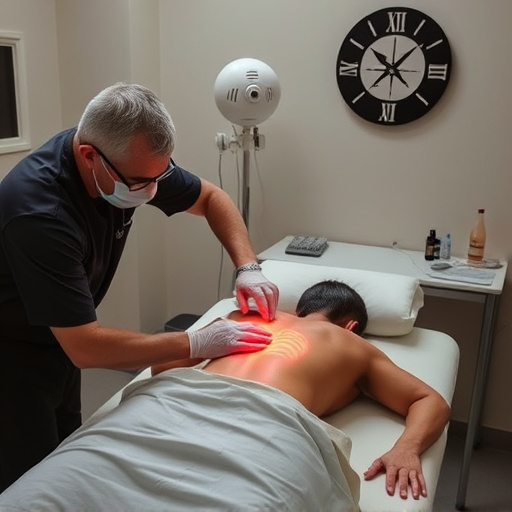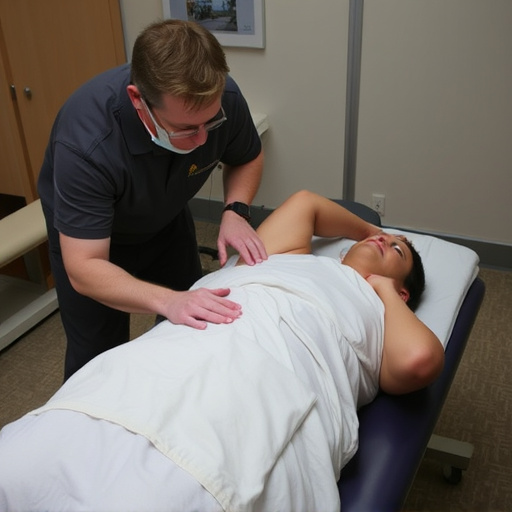Tricare Authorized Providers (TAPs) are healthcare professionals and facilities contracted by Tricare to offer specialized services to eligible beneficiaries at affordable rates, guaranteeing quality care through established standards. These providers, including hospitals, clinics, and practices, provide a range of medical services from primary care to advanced treatments like rehab and shockwave therapy, offering streamlined access and potentially lower out-of-pocket expenses for in-network patients. Understanding the difference between TAPs and network providers is essential for beneficiaries seeking healthcare, as network providers offer broader accessibility and convenience while TAPs focus on specific medical services.
“Unraveling the distinction between Tricare Authorized Providers and Network Providers is key for understanding military healthcare benefits. This comprehensive guide breaks down these roles and their impact on service members’ access to care.
We’ll explore how Authorized Providers offer specialized services, while Network Providers expand coverage through partnerships. By clarifying these differences, we empower Tricare beneficiaries to make informed decisions regarding their healthcare choices.”
- Understanding Tricare Authorized Providers
- The Role of Network Providers in Tricare
- Key Differences Between Authorized and Network Providers
Understanding Tricare Authorized Providers

Tricare Authorized Providers (TAPs) are healthcare professionals or facilities that have been approved and contracted by Tricare to offer their services to eligible beneficiaries. These providers play a crucial role in ensuring access to quality healthcare for military members, their families, and retirees who are enrolled in the Tricare program. When you’re seeking care for conditions like chronic pain relief or sports injury recovery, it’s important to understand that TAPs have specific qualifications and agreements with Tricare, guaranteeing that the services they provide meet certain standards.
These providers offer a range of medical services, including primary care, specialist consultations, and even rehab services, making them a one-stop solution for various healthcare needs. By utilizing a Tricare Authorized Provider, beneficiaries can expect streamlined access to care, potentially shorter wait times, and better coordination with their insurance coverage. This is particularly beneficial for those managing chronic conditions or requiring specialized treatments like sports injury recovery, as it ensures continuity of care within the approved network.
The Role of Network Providers in Tricare

In the Tricare healthcare network, Network Providers play a vital role by offering specialized services to patients covered under this military-civilian health plan. These providers are integral to ensuring accessible and quality care for Tricare beneficiaries. They often include hospitals, clinics, and practices that have entered into contracts with Tricare, agreeing to provide services at negotiated rates. This arrangement facilitates affordable healthcare options for active duty service members, retirees, and their families.
Network Providers can offer a wide range of services, from primary care to specialized treatments like shockwave therapy for joint pain relief or rehab services. Patients benefit from the convenience of in-network access, often with lower out-of-pocket expenses, as these providers are pre-approved by Tricare. This system streamlines the healthcare experience, making it easier for folks to navigate their health benefits and receive the necessary care without unexpected financial shocks.
Key Differences Between Authorized and Network Providers

When it comes to Tricare authorized providers, understanding the key differences between these and network providers is essential for beneficiaries seeking healthcare services. The primary distinction lies in their roles within the Tricare program. A Tricare authorized provider is a healthcare professional or facility that has been officially recognized and contracted by Tricare to offer specific medical services to eligible service members and their families. They are typically specialists, such as physical therapists or chiropractors, who focus on areas like muscle recovery and mobility improvement through functional rehabilitation techniques.
In contrast, network providers are part of a larger healthcare network that has entered into agreements with Tricare to deliver a range of medical services. These providers may include hospitals, clinics, and doctors’ offices that offer various treatments, from primary care to specialized procedures. While authorized providers often focus on specific areas of expertise, network providers tend to have broader practices. For individuals prioritizing accessibility and convenience, network providers might be more appealing due to their wide availability and ability to handle a variety of health concerns, including those related to mobility improvement and muscle recovery through functional rehabilitation approaches.
Tricare’s success relies on a balanced ecosystem where both authorized providers and network providers play distinct roles. Understanding these differences is crucial for beneficiaries navigating the complex healthcare landscape of Tricare. While authorized providers offer specialized services directly, network providers expand access through referral networks. By leveraging both, Tricare ensures its members receive comprehensive, high-quality care tailored to their unique needs.














